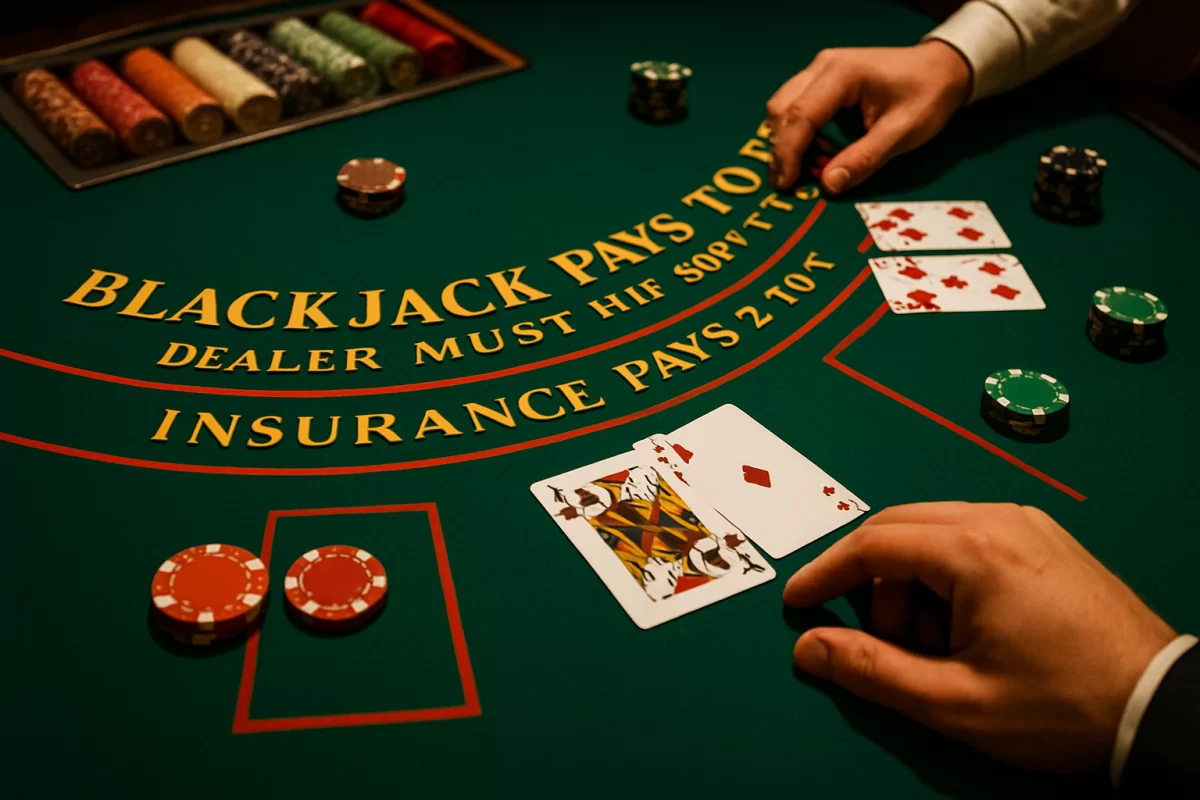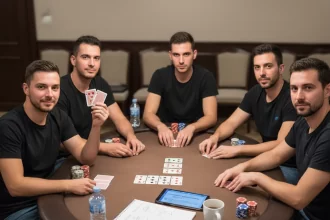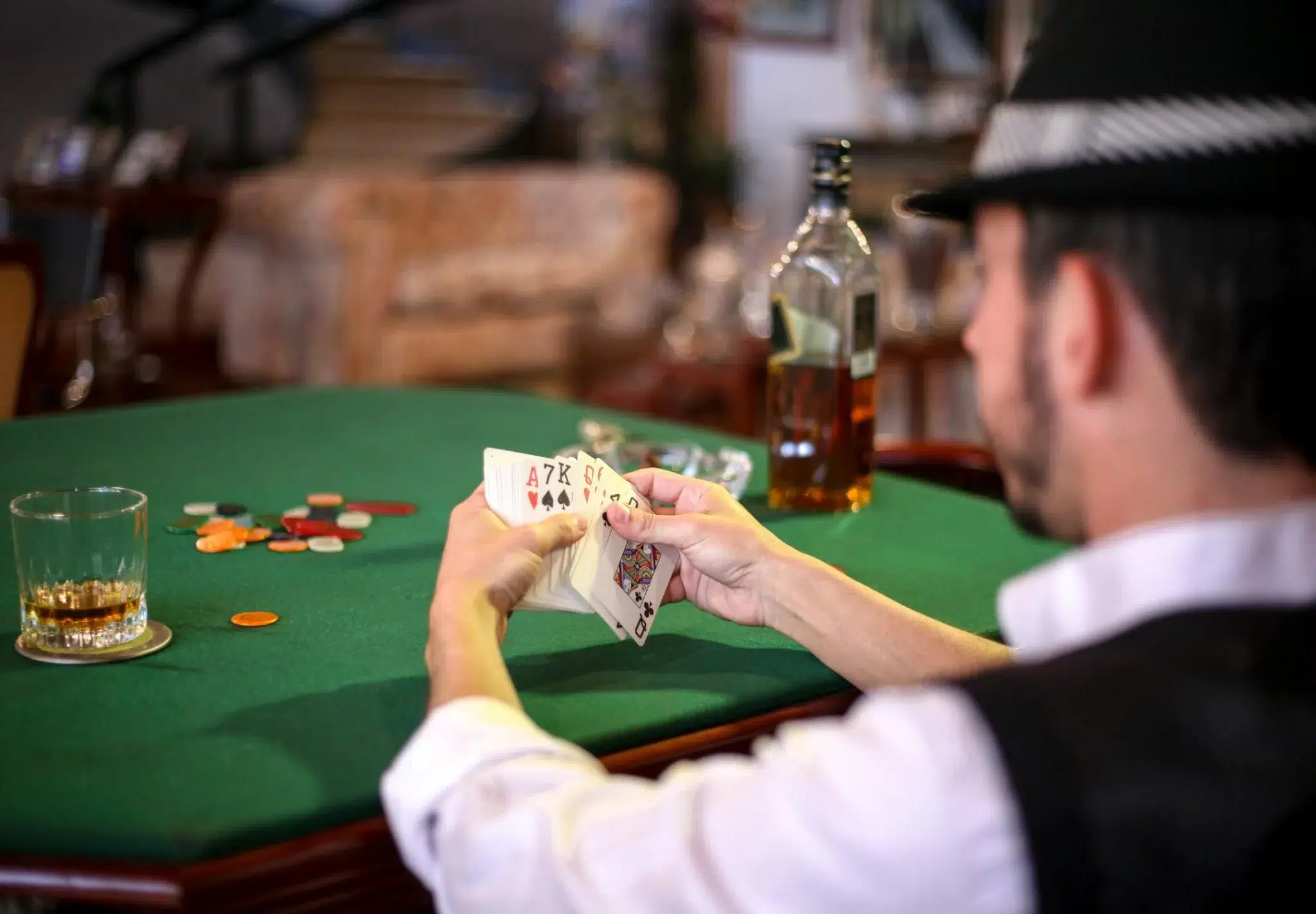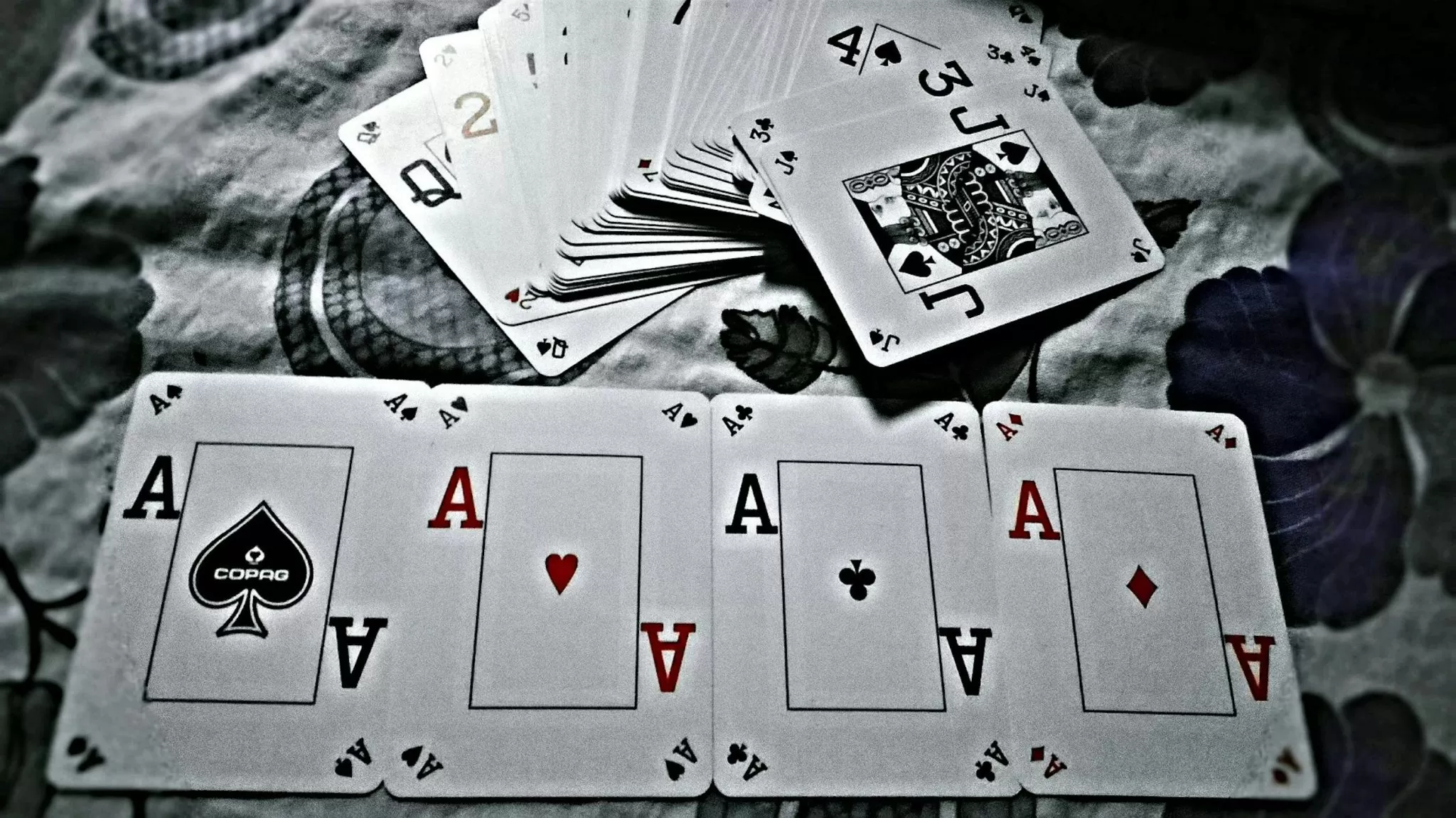Have you ever wondered why, despite your best efforts and strategies, casinos always seem to have the advantage at Blackjack? This question plagues the minds of many players who, seduced by the apparent simplicity of this iconic card game, regularly find themselves losing to the house.
Blackjack fascinates with its unique blend of chance and strategy. Unlike roulette or slot machines, it offers the player the opportunity to make decisions that directly influence the outcome of the game. Yet, year after year, casinos reap considerable profits from this game.
In this article, we will dissect the mathematical and psychological mechanisms that guarantee the casino’s advantage, but also explore advanced techniques that could allow you to narrow this gap, or even, under certain specific conditions, gain the advantage. Whether you’re a curious novice or an experienced player looking to refine your approach, get ready to discover the secrets of Blackjack that casinos would prefer to keep confidential. Summary
The Casino’s Mathematical Edge Explained
- The Rules That Tilt in Favor of the House
- Basic Strategy: Your First Line of Defense
- Card Counting: Myth vs. Reality
- Advanced Techniques to Reduce the Casino’s Edge
- Costly Mistakes to Absolutely Avoid
- Playing Online vs. Land-Based Casino: Crucial Differences
- Managing Your Bankroll for Long-Term Survival
- Alternatives to Classic Blackjack
- Conclusion: Can You Really Beat the Casino?
- The Casino’s Mathematical Edge Explained
The House Edge Principle

Blackjack, like all casino games, is based on a fundamental principle: the mathematical advantage of the house, also called “edge”. This advantage, generally between 0.5% and 2% depending on the rules in force, may seem negligible, but it guarantees the profitability of the casino in the long term.
The main source of this advantage lies in a simple but decisive rule: the player must act first. If the player exceeds 21 points (bust), he immediately loses his bet, even if the dealer also exceeds 21 subsequently. This asymmetry in the order of play constitutes the mathematical basis of the casino’s superiority.
The odds against the player
The statistics are relentless. According to a University of Nevada study published in 2019, an average player who does not follow basic strategy will experience a disadvantage of approximately 4% to 5%. Even when applying the basic strategy perfectly, this disadvantage remains around 0.5% in the best conditions.
To illustrate this mathematical reality, let’s imagine 100 hands played with a bet of €10 each. With a disadvantage of 0.5%, the player will statistically lose €5 over these 100 hands. Over 10,000 hands, the expected loss rises to €500. Time invariably works in favor of the casino.
The Illusion of Control and Survivor Bias
One of the most powerful psychological aspects of blackjack is the illusion of control it provides. Unlike other games of pure chance, the player makes decisions that partially influence the outcome. This active participation creates a deceptive sense of mastery.
The “survivorship bias” reinforces this illusion: we hear about the rare winners who defy the statistics, never about the thousands of losers. As Dr. Mark Griffiths, a psychologist specializing in the study of gambling, explains: “Players selectively remember their wins and forget their losses, creating a distorted perception of their overall performance.”
The Rules That Tilt in Favor of the House
The 6:5 vs. 3:2 Payout for Blackjack
Traditionally, a natural Blackjack (an ace and a 10-value card) pays 3:2, or €15 for a €10 bet. However, many modern casinos, particularly at low-minimum tables, have adopted a 6:5 payout (€12 for a €10 bet).
This seemingly minor change increases the house edge by approximately 1.4%, representing a massive 280% increase over the standard house edge! For the average player playing 100 hands per hour, this difference can represent an additional loss of €14 per hour.
Restrictions on Doubling Down and Splitting
Casinos often impose restrictions on when a player can double down or split pairs. For example:
No doubling down after splitting pairs
- Restricting doubling down on certain hand values (9-11 only)
- Limiting to a single card after splitting aces
- No re-splitting on certain pairs
- Each restriction adds approximately 0.1% to 0.2% additional house edge. Dealer Rules
The rule determining whether the dealer should stand on a soft 17 (a 17 including an ace counted as 11) or draw an additional card has a significant impact:
Dealer standing on all 17s (S17): favorable to the player
Dealer drawing on a soft 17 (H17): adds approximately 0.2% house edge
- According to an analysis by Michael Shackleford, a renowned expert on casino game probabilities, this simple variation can reduce a player’s long-term chances of success by 20%.
- Professional Blackjack Table with Dealer Dealing Cards
Basic Strategy: Your First Line of Defense

Basic blackjack strategy is not a simple set of tips, but a computer-calculated optimal mathematical solution. It indicates the statistically most profitable decision for every possible combination of your hand and the dealer’s up card.
Initially developed by mathematicians Baldwin, Cantey, Maisel, and McDermott in 1956, and later refined by Edward Thorp in 1962, this strategy is based on millions of computer simulations analyzing all possible outcomes. Complete Decision Table
Here are the fundamental principles of basic strategy:
Your Hand
Recommended Action
8 or less
| Always Hit | 9 |
|---|---|
| Double on dealer’s 3-6, otherwise hit | 10-11 |
| Double on dealer’s 2-9, hit on 10-A | 12-16 |
| Stand on dealer’s 2-6, hit on 7-A | 17+ |
| Always Stand | A, 2-A, 6 (soft hands) |
| Double on 5-6, hit on others | A, 7-A, 8 |
| Stand on dealer’s 2-8, hit on 9-A | Pairs of 2-3 |
| Split on dealer’s 2-7 | Pairs of A and 8 |
| Always Split | Pairs of 10 |
| Never Split | Strict application of this strategy reduces the casino’s edge to its theoretical minimum (approximately 0.5% under optimal conditions). The Importance of Strategic Deviations According to the Rules |
| Basic strategy must be adapted to the specific rules of each table. For example, with rules allowing surrender (giving up your hand in exchange for half your bet), it becomes mathematically advantageous to surrender certain difficult hands, such as a 16 against a dealer’s 10. | According to Gaming Education Research, only 13% of blackjack players correctly apply basic strategy, leaving the remaining 87% to concede a considerable additional advantage to the casino. |
Card Counting: Myth vs. Reality
Card Counting Fundamentals
Contrary to popular belief, card counting isn’t about memorizing every card dealt, but about tracking the ratio of high to low cards remaining in the deck. This technique is based on a simple fact: a deck rich in high cards (10, J, Q, K, A) favors the player, while a deck rich in low cards favors the dealer.
The Hi-Lo method is the most common: cards 2-6 are assigned a value of +1, cards 7-9 are assigned a value of 0, and cards 10-As are assigned a value of -1. Dividing this running count by the estimated number of decks remaining gives the true count, a key indicator for adjusting bets. Effectiveness and Legal Limits
Card counting can effectively reverse the mathematical advantage in the player’s favor, offering an edge of approximately 1% to 1.5% under optimal conditions. However, several obstacles stand in the way:
Legality: Contrary to popular belief, mental counting is not illegal, but casinos have the right to refuse service to players they suspect of this practice.
Countermeasures: Use of multiple shoes, frequent shuffling, limited penetration (proportion of the shoe played before shuffling).
Detection: Pit bosses are trained to spot the betting variations characteristic of counters.
According to casino gaming expert Stanford Wong: “Card counting is less effective today than it was 30 years ago due to sophisticated casino countermeasures.”
Advanced Counting Techniques
- For determined players, more sophisticated methods such as Omega II, Wong Halves, or KISS offer increased accuracy. These systems assign fractional or multiple values to individual cards, slightly increasing the potential advantage.
- Ace-sequencing and card tracking are complementary techniques used by professional teams. However, these approaches require intensive practice and exceptional concentration.
- Advanced Techniques to Reduce the Casino’s Edge
The Shuffle-Tracking Approach
Shuffle-tracking involves following favorable groups of cards through the shuffle process. While the shuffle is not perfectly random, this technique can roughly predict where certain sequences of cards will end up.
This method requires careful observation and exceptional memory, but it has the advantage of being more difficult to detect than traditional counting. James Grosjean, mathematician and professional gambler, estimates that this technique can generate an advantage of up to 3% under ideal conditions. Exploiting the Dealer’s Tells
Some dealers unwittingly develop habits or “tells” that can reveal the value of their hole card. For example, a quick glance to check for a potential blackjack or a slight variation in the way the cards are dealt.
Systematic observation of the dealer’s behavior and actions can provide valuable information. This approach, while less reliable than counting, is generally not detected by casino surveillance systems.

Coordinated Teams of Players
The most famous team method, popularized by the MIT team and the book “Bringing Down the House,” involves several roles:
Counters: follow the account at several tables without changing their bets
Signalers: transmit the account to the “big players”
High rollers: join tables only when the account is favorable
This approach maximizes gains while minimizing detection risks. According to a former member of the MIT team, this method generated millions of dollars in profits in the 1990s.
Costly mistakes to absolutely avoid
Superstitions that ruin you
- Many players base their decisions on superstitions rather than optimal mathematical strategy. Among the most costly mistakes:
- The “table savior” fallacy
- : Drawing a card when strategy recommends standing, in hopes of avoiding the dealer drawing a low card. This error increases the casino’s advantage by approximately 2%.
The fear of “stealing” the dealer’s card
: Hesitate to draw when other players have big bets, for fear of “taking” a good card from them. The cards are dealt randomly, this superstition has no basis.
Bet more after a series of losses
: The famous “fallacy of the maturity of chances” or belief that probabilities balance out in the short term. This mistake often leads to ruin.
- Insurance: the most disadvantageous bet Insurance, offered when the dealer shows an ace, is often presented as protection against the dealer’s Blackjack. In reality, it’s a side bet with a house edge of around 7%, one of the worst bets in the casino.
- Even if you count cards, insurance only becomes mathematically profitable when the true count exceeds +3, a relatively rare situation. The progression of negative bets
- Some betting progression systems like Martingale (doubling after each loss) seem foolproof in theory, but face two major obstacles in practice: Table limits that prevent indefinite doubling
The risk of losing all your capital in a series of consecutive losses
As mathematician Edward Thorp explains: “Progression systems cannot beat a game with a negative expected value.” Playing Online vs. Land-Based Casino: Crucial Differences
Advantages and Disadvantages of Online Blackjack
Online blackjack has several fundamental differences from its land-based counterpart:
Advantages:
- Generally lower minimum bets (often €1 versus €5-25 in a casino)
- No social pressure or judgment from other players
Often more generous bonuses and loyalty programs
Ability to discreetly consult strategy charts
Disadvantages:
Use of random number generators (RNGs), making counting impossible
Virtual shuffle after each hand in most online casinos
- Faster pace of play can accelerate potential losses
- Lack of the social aspects that contribute to the experience
- The Question of Automatic Shuffling and RNG
- In land-based casinos, the cards are shuffled periodically, leaving a “window” for counting. Online, the shuffle is generally performed after each hand, preventing any statistical exploitation. Online casinos use pseudo-random number generators (PRNGs) certified by organizations such as eCOGRA or iTech Labs. These algorithms theoretically guarantee a fair draw, but also eliminate any possibility of strategic advantage based on previously dealt cards.
The Specific Challenges of Live Blackjack
- Platforms offering live dealer blackjack offer a hybrid experience:
- Use of real cards and a real dealer
- Less frequent shuffling than RNG but use of automatic decks
- Inserting “cut” cards in varying positions to counter counting
Facial recognition sometimes used to identify players suspected of counting
The UK Gambling Commission reports that live blackjack tables generally have a slightly higher house edge (0.6%-0.8%) than premium land-based casinos.
Managing Your Bankroll for Long-Term Survival
Bankroll Management Fundamentals
Strictly managing your bankroll (playing capital) is essential to surviving the inevitable downside streaks. Here are the key principles:
- Appropriate Bet Size
- : Never bet more than 1-2% of your total bankroll on any single hand. For a €1,000 bankroll, this means bets of €10-20 maximum.
- Segregated Bankroll
- : Your playing capital should be strictly separated from your personal finances. Never gamble with money you need for everyday living. Winning Goals and Loss Limits
: Set realistic winning goals (+20% of bankroll) and strict loss limits (-40% maximum) per session.
Variance and Downstreaks
Variance, often overlooked by novice players, can be brutal even with a small mathematical disadvantage. Computer simulations show that a player perfectly applying basic strategy can suffer streaks of 10, 15, or even 20 consecutive losing hands.
To withstand these inevitable downswings, a minimum bankroll of 50 times your average bet is recommended for recreational play, and at least 100 times for those aiming for semi-professional play.
- Adaptive Betting Strategies If card counting isn’t an option, more conservative approaches like Oscar’s Grind or the d’Alembert system can help manage fluctuations:
- Oscar’s Grind: Start with a betting unit
- After a win, increase by one (if it doesn’t exceed the target) After a loss, keep the same bet
Reset after reaching the profit target
This cautious approach limits losses while gradually capitalizing on winning streaks.
Alternatives to Classic Blackjack
Player-Friendly Variants
Some Blackjack variants offer more advantageous rules for savvy players:
Spanish 21
- : Despite the absence of 10s (but retaining face cards), this variant offers many bonuses and favorable rules, including paying the player’s 21 even if the dealer has a Blackjack. The house edge can be as low as 0.4% with the right strategy.
- Double Exposure
- : Both the dealer’s cards are exposed, providing a considerable informational advantage. To compensate, the dealer generally wins on ties, and Blackjack is paid 1:1. The house edge remains around 0.7%, but the optimal strategy differs significantly from classic Blackjack.
- Blackjack Switch
: The player is dealt two hands and can exchange second cards. Despite compensatory rules such as the dealer pushing on 22, the house edge is reduced to around 0.2%-0.3% for players who master the specific strategy.
Blackjack Tournaments
Blackjack tournaments introduce an additional strategic dimension since you are playing not only against the house but also against other players. Bankroll management and timing of large bets become crucial.
In this format, even with a mathematical disadvantage against the dealer, a strategic player can outperform their competitors and win substantial prizes, often guaranteed regardless of the outcome against the house.
- Related Games with Better Potential For players looking to maximize their chances, some games offer a better risk/reward ratio than Blackjack:
- Poker : A game of skill where you compete against other players, not the house.
- Video poker : Some machines offer a slightly positive player advantage with perfect strategy.
Sports betting
: The ability to develop an advantage through statistical analysis.
As game theory expert David Sklansky notes: “Intelligent play selection is often more important than technical mastery of a particular game.”
Can you really beat the casino?
Blackjack occupies a unique place in the world of casino gaming. It is the only game where, theoretically, a player can achieve a mathematical advantage over the house. However, the reality is more nuanced and challenging.
- For the average player, the realistic goal is not to “beat” the casino in the long run, but to maximize their entertainment while minimizing their losses. Careful application of basic strategy, careful selection of tables with the most favorable rules, and disciplined bankroll management can transform blackjack into a lasting and sometimes profitable experience. For the tiny minority willing to invest hundreds of hours in counting and accept the risk of being expelled from casinos, the dream of becoming a profitable gambler remains attainable, but increasingly difficult to achieve in the face of sophisticated countermeasures at the establishments. As with any gambling, the wisest course of action is to never risk more than you can afford to lose, to view gambling as entertainment rather than a source of income, and to appreciate the moments when luck favors you.
- FAQ Is card counting illegal?
- No, mental counting is not illegal in most jurisdictions. However, casinos, as private businesses, have the right to refuse service to customers they suspect of this practice. What is the best strategy for a casual gambler?
Basic strategy, combined with selecting tables with favorable rules (3:2 payout, S17, DAS), remains the best approach for casual players.
Do progressive betting systems work?
No, no betting system can overcome the casino’s mathematical advantage in the long run. Progressions like the Martingale may seem effective in the short term but expose the player to the risk of catastrophic losses.
Is it better to play alone at a table or with other players?
Mathematically, it doesn’t matter for your personal advantage. However, a less crowded table allows you to play more hands per hour (an advantage for the casino) but also provides a quieter environment in which to apply your strategy.
How do you know if a blackjack table offers favorable rules? Look for tables offering: 3:2 payouts for Blackjack, the option to double down after splitting (DDS), the dealer standing on soft 17 (S17), and ideally late surrender.




